Why we’ve launched a targeted mentorship program and new dedicated funding awards

When Cleveland Clinic’s Neurological Institute created a framework of four career tracks for its professional staff in 2020, promoting increased clinical and translational research activity was a leading objective. In the two-plus years since, the career track framework has helped clarify that staff on one track central to research activity — the clinician scientist track — could benefit from additional guidance and resources, especially early in their careers.
Advertisement
Cleveland Clinic is a non-profit academic medical center. Advertising on our site helps support our mission. We do not endorse non-Cleveland Clinic products or services. Policy
In response, the Neurological Institute introduced or expanded a suite of offerings designed to provide that support, specifically:
“Growth in neurological research doesn’t happen on its own,” says Robert Fox, MD, the Neurological Institute’s Vice Chair for Research. “It’s the result of a deliberate strategy with specific programs to support various components of a robust research effort. Helping early-career and mid-career clinician scientists develop to achieve their full ambitions is key to that strategy. That’s the impetus behind these initiatives.”
The career path framework for Neurological Institute professional staff consists of the following four career tracks:
As detailed in an earlier Consult QD article, the framework was developed to optimally support and accelerate the professional development of Neurological Institute staff across the full range of professional interests and dedicated efforts.
Soon it became clear that the clinician scientist track — which included 9% of Neurological Institute staff in 2021 — differed from the other tracks in ways that might benefit from extra attention.
“This track represents a relatively small share of physicians with a career pathway that differs enough from the others to benefit from specifically focused and nuanced guidance,” says Dr. Fox. “All aspects of standard physician training — from medical school to residency to fellowship — are focused mainly on becoming a clinician. Very little of it provides the background, guidance or direction for becoming a clinician scientist. That’s why we felt a mentorship program dedicated to clinician scientists, especially those early in their careers, would be helpful.”
Advertisement
The result is a dedicated Neurological Institute mentorship program for clinician scientists, which launched in 2021. The program formally pairs a more experienced or senior clinician scientist (mentor) with a less experienced or more junior clinician scientist (mentee) to foster the career development of mentees and guide them toward research independence.
“The goal is to promote engagement for clinician scientists who are early in their careers and would like professional guidance on building a research career, including accessing resources for their research within Cleveland Clinic and beyond,” explains Reena Mehra, MD, MS, who leads the mentorship program in addition to serving as Research Director of Cleveland Clinic’s Sleep Disorders Center. “We’re trying to ensure the success of early-career clinician scientists by connecting them with an established clinician researcher who can serve as a guide as they grow and evolve in their careers.”
The mentor-mentee relationship is designed to last at least one year and ideally until the mentee has reached research independence by achieving goals in the program’s four main focus areas: administrative management, funding, productivity and career advancement. Coaching and guidance are provided in each of these realms, with the mentee driving the relationship in terms of defining goals and setting the frequency of meetings. The mentor helps the mentee refine their research focus, advises on managing research resources and infrastructure, and helps develop strategies to meet funding and productivity goals.
Advertisement
“We aim to match mentees with mentors from a different subspecialty area, so that mentors can offer a different, objective and unbiased professional and scientific perspective and so that mentees feel comfortable discussing and navigating challenges specific to their area,” Dr. Mehra notes.
While the program draws somewhat from a general staff mentorship program at Cleveland Clinic and its Lerner Research Institute, as well as from Dr. Mehra’s experience with mentorship programs in specialty medical societies, she is aware of no comparable program geared specifically to clinician scientists at other academic medical centers.
The program launched with four mentor-mentee pairs in 2021 and added eight more pairs in mid-2022. Survey data from participants so far has been positive and will inform adjustments to the program moving forward. “Mentees shared that the program has been instrumental to how they strategize around grant submissions and respond to grant reviewers, as just two examples,” Dr. Mehra says.
She hopes that as the program matures, it will help cultivate a “community of mentees” who can rely on each other for guidance in addition to their mentors. “Because clinician scientists are a relatively small group, pursuing that career pathway can feel somewhat isolating,” she explains. “We are looking to create a cohort of clinician scientists in the neurosciences who can support one another.”
Similarly, Dr. Mehra hopes the mentor-mentee relationships themselves prove to be open-ended. “Even after mentees get their first R01 award, new challenges follow that are specific to that,” she says. “Challenges unique to the clinician scientist can arise throughout one’s career. A mentorship experience that continues even in an unstructured way can prove invaluable at mid-career and beyond.”
Advertisement
Even if funding awards don’t mark the end of a need for mentorship, they are an essential milestone in the development of a clinician scientist. Yet early-stage clinician scientists typically don’t have research funding to support their salary, not to mention funding for the infrastructure of the research project they envision.
“To help meet this unique need, the Neurological Institute has created a Clinician Scientist Career Award, which provides up to two years of support for early-stage investigators,” says Dr. Fox.
The funding is twofold, consisting of support up to 50% of the clinician scientist’s salary plus up to $25,000 per year ($50,000 total) in support for the research program — for anything from research coordinator staffing to lab analysis, biobanking or brain imaging studies. “The research support funding isn’t likely to meet all the project needs, but it’s meant to give the researcher a start,” Dr. Fox explains.
The award is designed to help early-stage staff become established clinician scientists by accelerating their development of sufficient experience and preliminary data to successfully compete for either of two types of externally funded awards:
The first two Clinician Scientist Career Awards were given in 2021, and the institute plans to fund up to two new awards each year moving forward. The first two awards are already bearing fruit:
Advertisement
“These initial awards reflect the versatility of our funding program, as one has bridged an early-stage investigator to a career development award and the other is helping an early-stage investigator compete directly for a large peer-review award,” notes Dr. Fox. “Our aim is to support staff across various career path trajectories.”
A related Neurological Institute initiative is the expansion of a broad research funding initiative known as the Transformative Neuroscience Research Development Award. Established in 2017, this award supports development of research resources that can be leveraged across the institute to obtain external peer-review grants.
“It’s designed to fund not a specific research project but rather the creation of a resource that can be tapped into for a number of research opportunities, typically through external funding,” Dr. Fox explains. “The resource created is generally a collection of information or preliminary data, whether it be imaging data, neurologic performance data or biobank specimens. The idea is to create a resource that can be built upon and used on an ongoing basis to address multiple research questions.”
Funding priority is given to applications that focus on collaborative clinical or translational research with a novel scientific focus aimed at transforming patient care. Past funded projects include:
Applications are made by a team of researchers, typically with multidisciplinary expertise, and each award provides up to $50,000 per year for two years. Although the award has been in place for five years, Neurological Institute leadership anticipates giving more awards starting this year. “Our aim is to give two new awards every year moving forward,” Dr. Fox says.
He adds that a specific objective of this transformative research award is to serve as a catalyst for the careers of junior investigators as well as for extramural applications by mid-career and senior investigators.
“The Neurological Institute’s expanded commitment to this award is part of a deliberate strategy to grow our clinical and translational research program by many methods, not just by cultivating early-stage clinician scientists,” Dr. Fox notes. “We welcome mid-career clinical researchers to take advantage of the robust resources available through the Neurological Institute Research Office. We are eager to connect them with our resources to help support the research they love to do.”
Advertisement
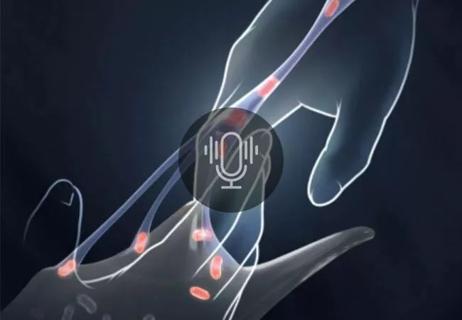
New research focuses on tumorigenic aspects of communication among brain cells
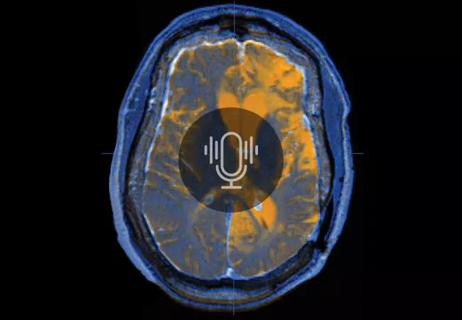
Evidence hints that chronic neuroinflammation might stem from a CNS-directed autoimmune response
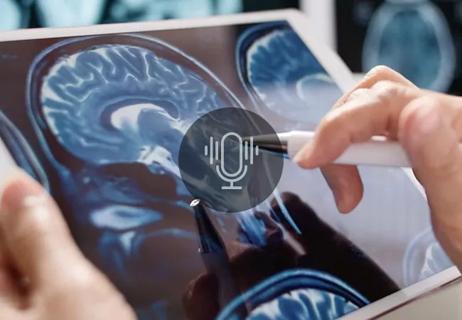
Insights on leveraging collaboration and advocacy to develop and conduct needed trials
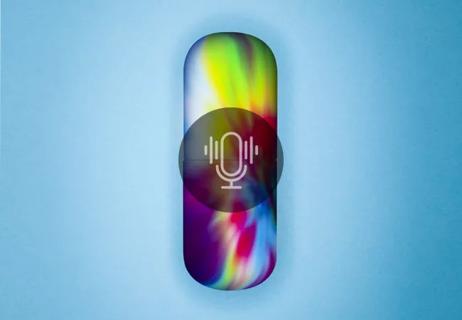
Research shows promise for use in therapeutic settings to manage depression, PTSD, anxiety and more
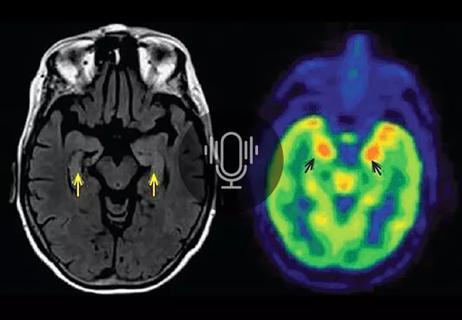
Comprehensive evaluation and keen clinical judgment are key in suspected cases

An expert talks through the benefits, limits and unresolved questions of an evolving technology

Planning continues with critical, patient-focused input from nursing teams

An expert’s take on evolving challenges, treatments and responsibilities through early adulthood